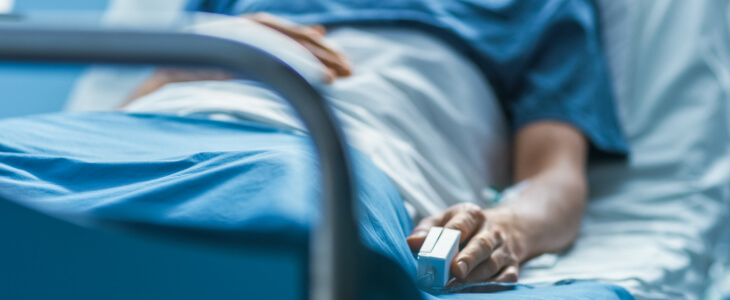Having surgery is risky enough, but the danger isn’t over once the operation is finished. Postsurgical infections are surprisingly common, and they can cause major health problems and sometimes death. Following standard sanitizing procedures can help avoid postsurgical infection. But what options do you have if your doctor or hospital failed to take these steps and you developed an infection?
You need a dedicated medical malpractice attorney to fight for the compensation you deserve. Count on the team at Cooper Schall & Levy.
How Do Postsurgical Infections Happen?
Anyone can be infected if they come in contact with germs. It’s particularly easy to develop an infection following a surgical procedure. Contaminated instruments may be used during the surgery, or the operating room might not be clean. Someone who fails to wash their hands and then touches an incision can also spread germs and cause an infection.
There are other ways an infection can happen. An infection can easily occur deep in a person’s body, rather than at the site of the incision. This can happen if the surgery is particularly invasive and a contaminated instrument is inserted into the body. This type of infection can spread to vital organs and cause major complications. An infection may also occur if a patient experiences a blockage or leak following the surgery.
Finally, an infection may occur after the surgery because proper postsurgical procedures were not followed. Patients should be given a list of steps they need to take after going home to prevent the risk of infection. If the patient is not provided with such information, or the steps the patient is given are incorrect, a serious infection could result.
Doctors and hospitals have a number of sanitation procedures that should be followed to keep instruments and operating rooms clean. Although it’s not possible to absolutely guarantee a total absence of contaminants, proper sanitation greatly reduces the likelihood of serious infection. But a busy, overworked hospital staff can easily overlook or cut corners with these steps, putting patient health at risk.
Signs Of Postsurgical Infection
Your doctor should also give you a list of infection symptoms to watch out for after surgery. Some of those signs include:
- Unusual pain
- Swelling
- Redness
- Fever
- Drainage of pus
If you feel any abnormal discomfort or experience other problems after your surgery, you should contact your doctor immediately. An infection that’s detected early enough can usually be treated with antibiotics. However, in some cases, the infection can develop into something more serious like sepsis. An infection can even be fatal if it’s not treated early or carefully enough.
When Is A Postsurgical Infection The Result Of Medical Malpractice?
It’s a common misconception that any mistake a doctor or hospital makes is a result of malpractice. In reality, the law does not require that healthcare professionals never commit any mistakes. Even the cleanest, most reputable medical facility can be the site of an infectious outbreak. There are germs everywhere and perfect adherence to sanitation guidelines won’t totally eliminate them.
What the law doesn’t allow, and what is likely indicative of medical malpractice, are unreasonable mistakes. This means that the doctor or hospital was irresponsible in some way, for example by neglecting to sanitize the equipment, failing to wash hands, or failing to advise the patient on postsurgical steps to take at home. Mistakes like these are generally not acceptable because a reasonably prudent physician would have followed them.
The key question is therefore whether the medical professional acted negligently toward the patient, not whether a mistake was made. A mistake alone will not be enough to prove medical malpractice, although it could point to underlying negligence.
What Damages Are Available In A Postsurgical Infection Case?
If a patient develops an infection after surgery, it can spell significant financial loss. Not only will the patient incur medical expenses to get better, but he or she will almost certainly lose time from work due to medical appointments and extended recovery.
These are a few of the damages that an injured patient might be able to recover through a lawsuit and the MCARE coverage:
- Past, present, and future medical bills and expenses related to treating the infection
- Lost income from work
- Decreased earning capacity if the patient cannot return to their previous work because of the infection
- Pain and suffering
Tragically, some patients succumb to their infections and pass away. In cases like this, the surviving family members may be able to maintain a wrongful death claim against the at-fault doctor or hospital. These lawsuits cover additional damages such as funeral and burial expenses.
Contact Our Philadelphia Postsurgical Infection Attorney
Taking on the powerful insurance companies and attorneys who represent doctors and hospitals is no simple task. But with Cooper Schall & Levy by your side, you can make the strongest possible claim for damages and fight to hold the at-fault parties accountable for their actions. Reach out to us today to learn more and to schedule your confidential consultation.
Cooper Schall & Levy medical malpractice lawyers serve Philadelphia, Pennsylvania as well as neighboring counties such as Montgomery County and Delaware County and cover neighborhoods such as Norristown and Drexel Hill.


